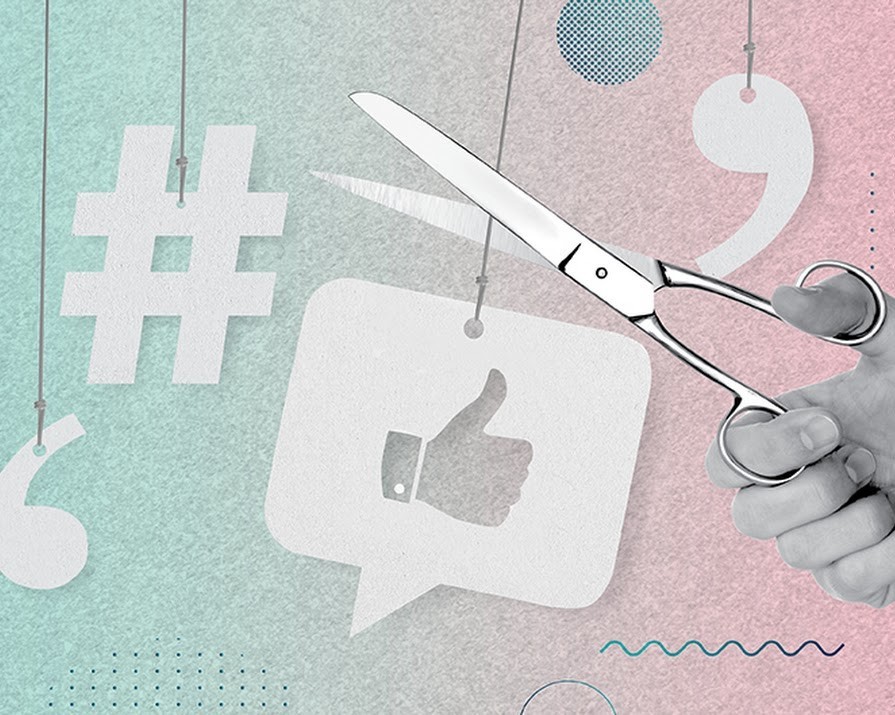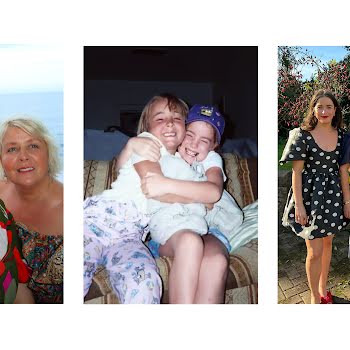By Sarah Finnan
28th Feb 2025
28th Feb 2025
Phone addiction is at an all-time high in Ireland. In fact, a recent study found that almost a fifth of Gen Z spend over seven hours hours engaging with social media. Whether you're addicted to Instagram or just want to lower your screentime a little, here's how to help lessen your reliance on that little light-up block.
Have you ever felt the almost uncontrollable urge to fling your phone over the edge of a bridge, into the abyss? Same. These days, that feeling is no longer reserved for just walking across bridges suspended over large bodies of water; in fact, it’s an almost constant desire.
Like most people, I have become unequivocally addicted to my smartphone. Initially just a way for me to stay in contact with friends and family, its uses quickly began to expand and now it is everything from my alarm clock to my map to my journal, fitness tracker and camera. It’s also a continual source of stress and anxiety… and yet, I can’t seem to cut ties with it.
Last January, I decided enough was enough and so I downloaded a time blocker app in an attempt to help me curb my reliance on Instagram and TikTok. Things started off well and by 9pm each night, I had locked myself out of all social media platforms. It was only when they weren’t readily available that I really noticed just how often my thumb would go looking for them. I’d answer a WhatsApp message from my boyfriend and before I even knew what I was doing, my finger was hovering above the icon, goading me to click it. It was like muscle memory; it was a mundane act I had done so ritualistically that it no longer required any thought. That scared me. As did the shockingly high screen time – I will not divulge that figure for fear of scrutiny, but it was reflective of my being Extremely Online.
This year, I made the same resolution, encouraged to lock my phone in some hard-to-reach place because the constant cycle of bad news and terrible tragedies was hurting my poor empath heart too much. I’m aware that ignorance is a luxury, and I don’t take that for granted, but the doomscrolling and negativity were taking their toll. A recent email confirmed my suspicions: prolonged exposure to the current news climate is likely to cause anxiety and burnout. In Ireland, the average Irish resident spends up to seven hours a day on social media platforms… that figure is considerably higher for me, given my job. I put my feelings of hopelessness down to the weather, but I think there was more at play.
So, how does one break the cycle? Two experts—Andrew Smith from Click Consult and psychologist Anna Shears—share their advice to empower people to keep up to date with current affairs while still safeguarding their mental health..
Stay informed but don’t overload
The nature of social media means that users are subject to a constant barrage of information, and scrolling can become addictive. Yes, it’s important to keep abreast of what’s going on in the world, but too much exposure can be overwhelming and lead to feelings of stress, anxiety and burnout. Limit your news intake to a few trusted sources rather than getting your information from every site you can think of. Stop checking the news every time there’s a notification—that will only put you on edge—and limit the amount of time you spend reading up on things to a specific time once a day.
Curate your social media feeds
We’ve heard this one time and again, but it’s worth repeating: if someone else’s profile is making you sad, unfollow them. You have the power to curate the content you see on social media every day and it’s important you take that seriously. The things you consume can have a major impact on both your mood and your mindset; following content that makes you anxious or angry can have a serious knock-on effect on your mental health. Be aware of your triggers, unfollow and block accounts that post negative content, and mute keywords and hashtags that trigger stress or anxiety. If there are people you can’t unfollow, consider muting their stories so that you’re not seeing them regularly. Tailor your feed and algorithm so that social media is a happier place for you – that doesn’t mean you should make it an echo chamber of just one viewpoint, but if someone or something is bringing you down, consider taking some time away from that account for a little while, at least.
Make it harder for yourself
Turn off auto-login on your social media apps – trust me, it seriously stops you from using them as often! Having to enter your username and password every time you want to scroll will make you more mindful of what you’re doing, so you’ll stop and think about whether you really want to log on. Making it more difficult for yourself will prevent you from mindlessly scrolling.
Set limits
Set time limits for yourself and try to only use social media during those specific times. Avoid first thing in the morning if at all possible as this will only start you off in a bad mood, and before bed, which will do nothing to stop racing negative thoughts as you’re trying to drift off. Keeping to these limits will help you actually enjoy the time you have on social media, too, as it’s short-lived. What’s rare is wonderful and all that!
Seek support
Doomscrolling and social media addiction can have a significant impact on your mental health, often fostering loneliness and sometimes even depression. If you find yourself struggling or in a negative headspace, it’s important to seek support. Reach out to friends and family if you’re feeling overwhelmed, and consider getting help from a mental health professional who can help you with strategies to build a healthier relationship with social media. A problem shared is a problem halved, and there’s no shame in asking for help.
Find balance
As Anna Shears, a positive psychologist and accredited coach, points out, social media effects often interact with pre-existing conditions. “Long-term impacts are still being studied as social media is relatively new,” she says. Balance is the key. “Disproportionate or excessive use can have negative consequences, whereas when used in a meaningful way as a tool to seek support or guidance, it can be useful.”
Illustration by Laura Kenny.























